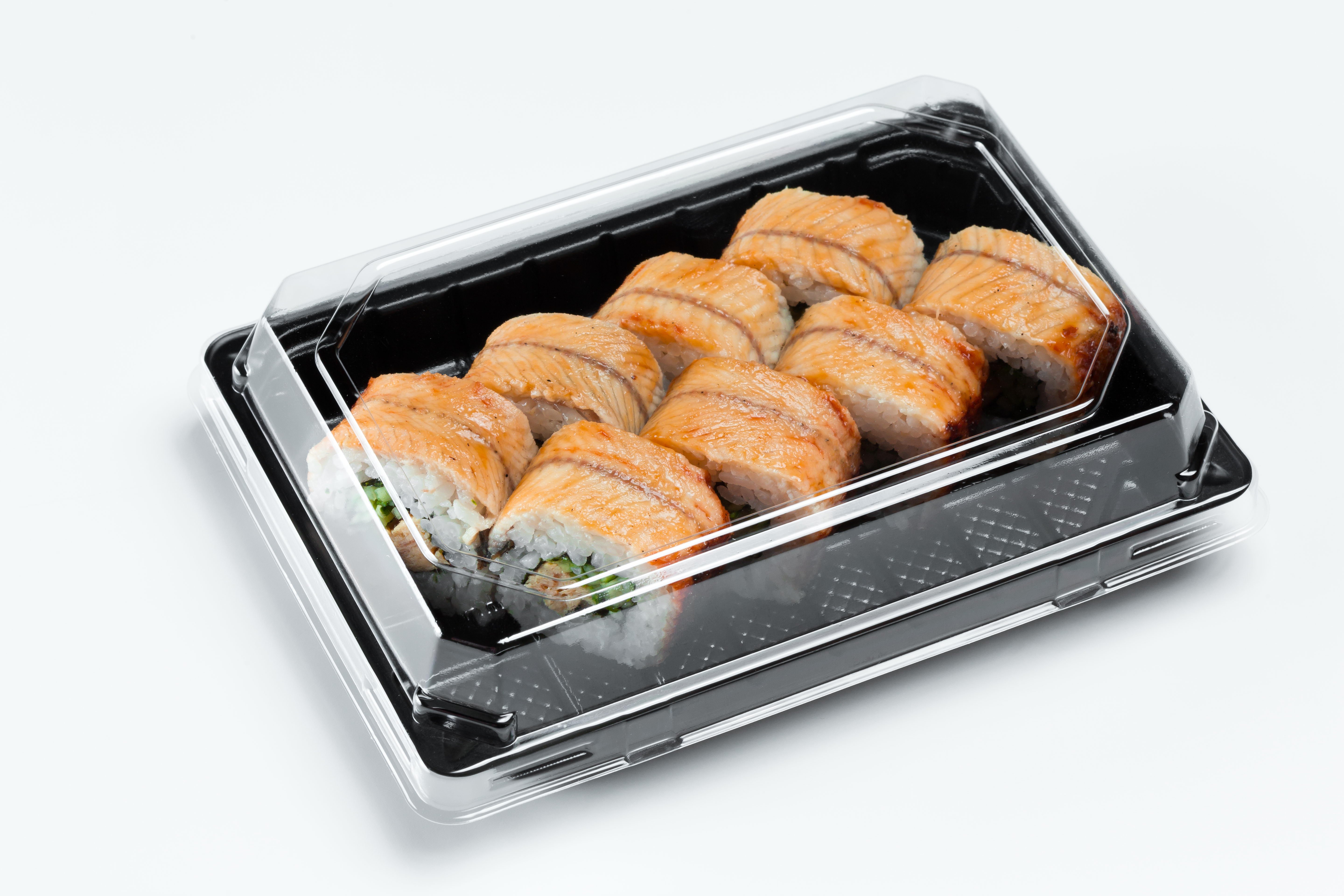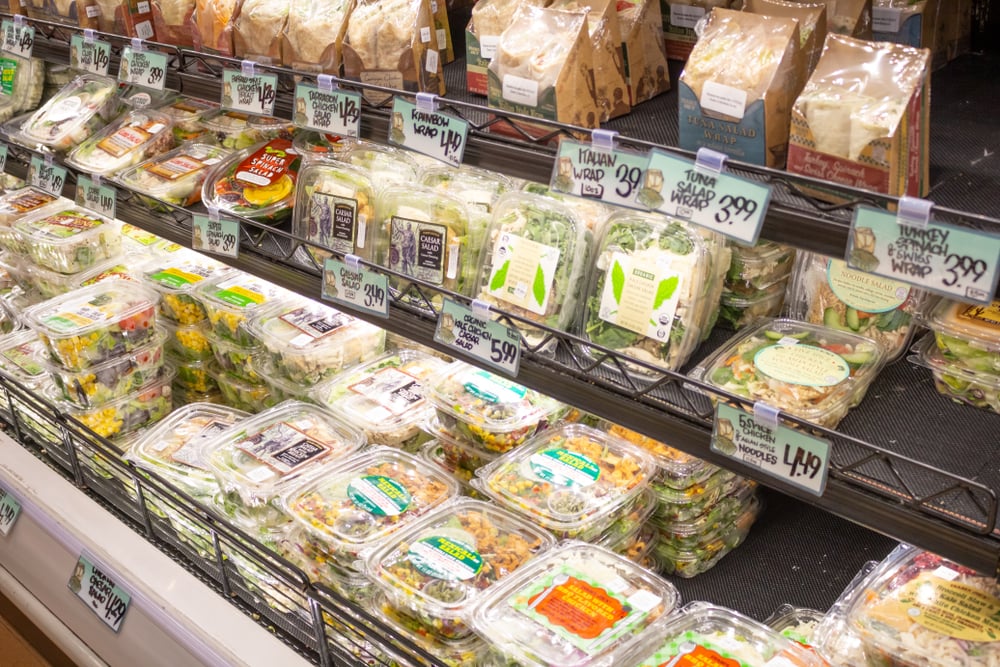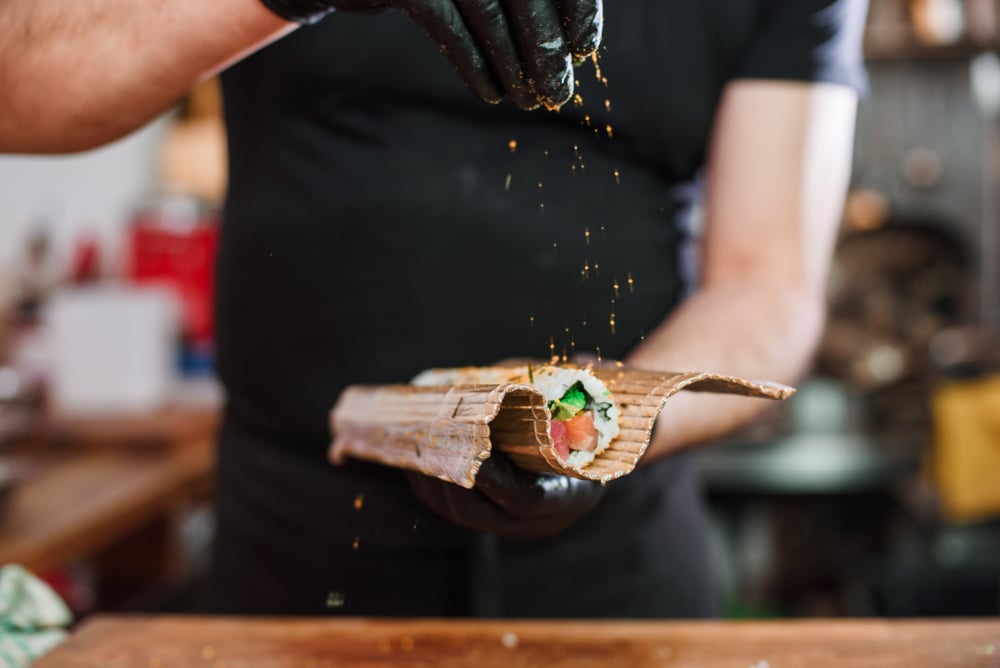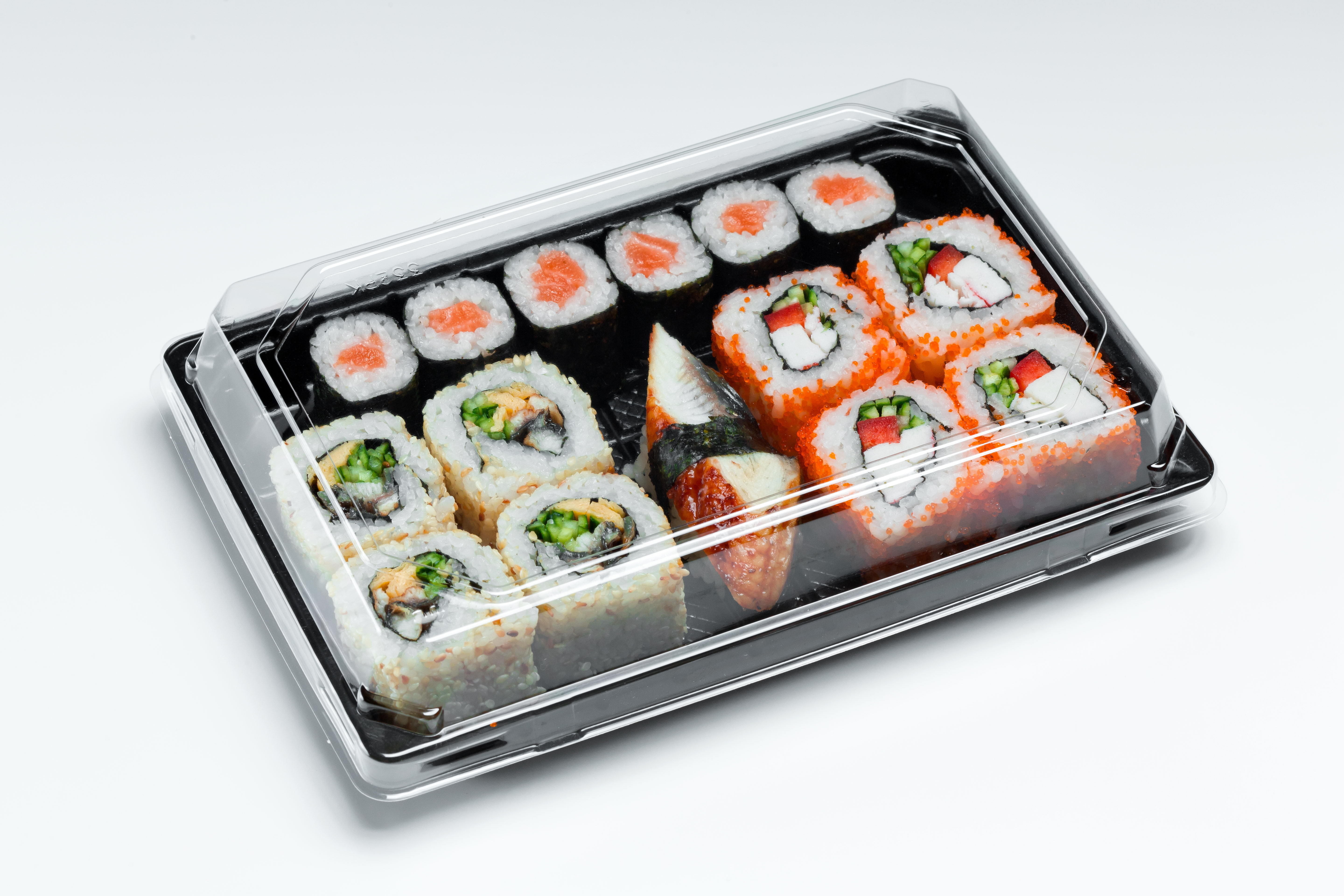Fuji Foods, the country’s largest provider of prepackaged sushi, issued a thirty-one-state recall last month with concerns that products sold under Okami and Trader Joe brands may contain listeria, an uncomfortable-at-best, deadly-at-worst food-borne bacteria. Yup, that’s right, Trader Joe’s gets their sushi from the same company that provides Walgreens, 7-Eleven, Food Lion, Golden Eagle, and a host of other grocers. And it got recalled.
Look, recalls happen--they’re not ideal but they are endemic to agriculture. But this recall got us thinking about prepackaged sushi in general (which is not very good), Trader Joe’s sushi offerings in particular (no better), and the pitfalls of private labeling prepackaged foods. From Costco’s Kirlkand to Lidl, Aldi, and even the Trader himself, we have long exalted the relative affordability and strong brand identity that can be built around a dedicated private label grocer. But, as we shall see, with prepared foods come new challenges.
So, while you probably don’t need grocery industry market research to tell you to avoid prepackaged sushi in each and every one of its incarnations (seriously, just keep on walking), we’re putting it in nonetheless, outlining the promises and limitations of prepared foods and the particular challenges they represent for grocers like Trader Joes in the grab-and-go and grocerant era.
The Reviews Have Been Rolling In

Saying Trader Joe’s sushi is bad is not news. The internet has long bemoaned Trader Joe’s sushi, which regularly sits atop listicles enumerating the products to avoid at the private label grocer (also, internet consensus says to avoid wraps and most fresh produce). So we don’t need market research to tell you what everybody with taste buds already knows: the product is subpar at best, an atrocity at worst.
The rice is gummy, the proportions are off, and it has a strangely mechanical taste. The ingredient label is a long list of preservatives, the fish is almost entirely “Krab,” and it seems as though the product was assembled a long time ago in a galaxy far, far away.
But it’s not all their fault. Let’s face it, premade sushi is not the easiest product to manage. Other than cooking the fish, loading it with preservatives, and keeping it cold, there are no viable shipping and storing options. Indeed, nobody wants to steer sushi into the frozen foods section, and the overhead required to make it on-site at the store or even regional level would be unsustainable for Trader Joe’s business model. So, if Trader Joes wants to sell premade sushi, this would seem to be their only viable option other than finding a new supplier with more unique and tasty products.
But maybe they shouldn’t be selling it at all. More on that later.
When Private Labels Aren’t So Private
Let’s be clear, we love Trader Joe’s. A legitimate SoCal institution and treasure, the chain has, with their private label offerings as varied and unique as they are tasty and affordable, found their way into America’s heart. They currently operate 503 stores in 42 states and inspire countless blogs, hacks, and other public acts of devotion among its adoring shoppers.
So, on the surface, this recall is no big deal--most customers probably didn’t even notice. But while the sushi recall itself does not stand to alienate their customer base nor sully their nearly impeccable reputation, it exposes a more problematic truth: Tellingly, the recall affects not just Trader Joe’s but a host of other grocers, c-stores, and drugstores including 7-Eleven, Walgreens, Food Lion, Golden Eagle, Superior Foods, Bozzuto’s, and Hannaford. This is a problem as it relates to Trader Joe’s brand promise.
For Trader Joe’s, a large part of their identity is the quality and relative affordability of their private label goods--the Trader’s branded products are supposed to be more inventive, affordable and just plain better than you can find at the typical supermarket. Like Whole Foods without costing a whole paycheck. So the mere fact of a recall is embarrassing, but even more embarrassing is the fact that Trader Joe gets its premade sushi from the same people who supply 7-Eleven and Walgreen's. Said simply, it does not behoove Trader Joe to be associated with products also available at these convenience-based retailers.

When people buy sushi at 7-Eleven--as our 2019 Convenience Store Industry Report revealed--they know what they are getting into and don’t expect too much. It is easier for substandard sushi to exceed the minimal expectations of a c-store sales floor than for even mediocre sushi to surpass Trader Joe shoppers’ stratospheric ones.
Indeed, shoppers enter Trader Joe's with lofty expectations for their private label products and find the same tired sushi they could have gotten at 7-Eleven. It would be like finding out that Hanes makes Nordstrom’s private label underwear--there’s nothing wrong with Hanes, but it is less than people expect based on Nordstrom’s brand identity.
Trader Joe’s Shoppers want the sushi to be as unique and delicious as the cauliflower gnocchi and the jerk-spiced plantain chips, and according to first-hand experience and popular internet opinion, it just isn’t. (Also, a quick word about those jerk plantain chips: buy them one bag at a time unless you want to wake up with your fingers covered in jerk spice powder in a home littered with empty bags and regrets.)
The sushi’s quality, especially when compared to grocers that make their sushi in-house like Wegmans, contradicts Trader Joe’s very reason for existence, undermining the brand promise that comes with their private label.
Think about all the good word-of-mouth Costco gets every time a Kirkland brand manufacturer is revealed, whether it be Grey Goose for the private label Vodka or Gillette razor cartridges. Customers long ago figured out that private labels are not made by retailers themselves, and it makes them happy to learn products are made by trusted, respected, and valued manufacturers. With Trader Joe’s sushi, however, this is not the case as the product is made by Fuji Foods, the world’s largest prepackaged sushi manufacturer, which also sells under the widely available Okami brand.

Grocery Industry Market Research: Stop the Sushi Madness!
Indeed, we have a hunch: if Trader Joes were to run some penetrating market research (particularly Voice of the Customer methodologies, panel surveys, and shop alongs), the data would tell them it’s time to ditch the sushi altogether.
The product deteriorates consumers’ opinions of Trader Joe’s private label goods, is regular internet fodder for the blogosphere, and is not winning any accolades among the acolytes--nobody’s going to TJ’s for the sushi. Its wide availability at other retailers, its reputation among consumers and writers, and its recall itself are all compelling reasons to jettison the in-store sushi, at least until a more viable version can be found (which, again, will be difficult).
Sure, there may be some customers who swear by the stuff, but they can take comfort knowing the same exact product is sold by retailers far and wide.


